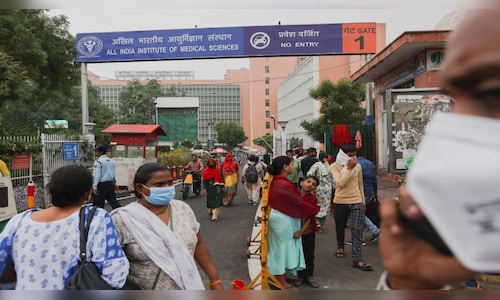The introduction of robotic surgery underscores AIIMS’s commitment to enhancing patient care, enabling the execution of complex procedures with unmatched precision, and keeping pace with global advancements in medical technology, said Dr Hemang Bhattacharjee, professor of surgery at AIIMS.
“The initiative to incorporate robotic surgery into its general surgery department is a strategic move to elevate the standard of care provided in a government healthcare setting,” he said.
The surgical robot allows for a magnified, three-dimensional view of the operative field and offers unparalleled dexterity through robotic arms, enabling surgeons to perform intricate procedures with precision.
The technology is particularly advantageous for surgeries requiring meticulous dissection and suturing in confined anatomical spaces, Bhattacharjee said.
“For example, complex colorectal surgeries, esophagectomies, and pancreatic surgeries that were traditionally challenging due to their invasive nature can now be performed with reduced complications, shorter hospital stays and faster recovery times,” he said.
While private hospitals in metropolitan cities like Delhi, Mumbai, and Chennai have embraced robotic systems in specialties such as urology and gynaecology over the last decade, its adoption in government hospitals, especially for general surgery, has been relatively limited, Bhattacharjee said.
AIIMS Delhi is bridging this gap by bringing advanced robotic capabilities to a public healthcare setup, ensuring that patients from diverse socio-economic backgrounds benefit from the technology, Sunil Chumber, head, department of surgical disciplines, said.
“AIIMS is an academic institute and more than 100 surgical residents pursue their training in the department at any given point of time.
“Successful installation of the system will provide our resident doctors ample opportunity to get trained on this latest technology during their residency period. This has positioned our training curriculum on par with any of the renowned medical institutes of the world,” Chumber said.
(Edited by : Priyanka Deshpande)


